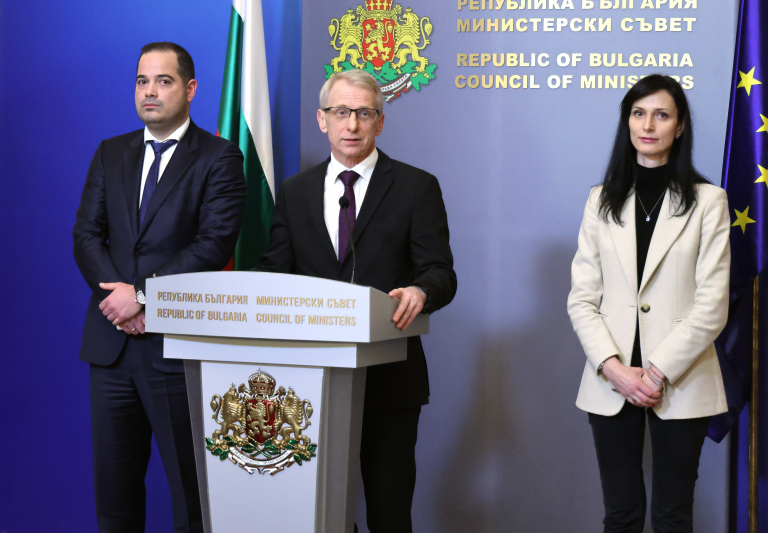
28.12.2023
The accession to the Schengen area of Bulgaria and Romania will be in two steps. The Parliament of the Netherlands has already lifted its veto while Austria has pledged support in principle. Negotiations continue and if a final agreement could be reached, air and maritime internal border control will be lifted in the end of March. The Government will continue its hard work over the next year as well, in order to be able to move on with the next step – the lifting of checks at internal land borders. This was announced in the course of a joint briefing of Prime Minister Acad. Nikolai Denkov, Deputy Prime Minister and Minister of Foreign Affairs Mariya Gabriel and Minister of Interior Kalin Stoyanov on the progress of the Schengen negotiations.
“The accession to Schengen will be enabled by this act as the accession to the Schengen area gives, in the first place, access to information and applicable procedures. It will be a two-step event, however, the confidence that is placed in us will materialize now as air and maritime internal borders cease to be subject to controls. If nothing surprising occurs, the next step should follow the first one,” the Prime Minister said.
So far, no date for the opening of the land borders has been discussed. The goal is to fix a date next year. “It is important for us that 2024 be the year when we continue to demonstrate results and, in cooperation with Austria, proceed with the next step. Therefore, our goal for the negotiations is unchanged: in 2024 we should have the date for the lifting of checks at the internal land borders,” explained the Deputy Prime Minister and Minister of Foreign Affairs Mariya Gabriel.
Acad. Nikolai Denkov emphasized that in the course of the negotiations, Austria helped Bulgaria and other countries that share borders with the European Union as it insisted that the European Commission support them with funding, equipment and expertise. Austria’s interest concurs with Bulgaria’s interest in this matter. “Like all other, we want to strengthen our external borders; therefore, there is no major divergence in objectives. There is divergence in how to phase the processes of border fortification and of lifting of checks at the internal land borders. This is the negotiation process that has been going on for some time and will continue next year,” the Prime Minister said. He added that at this stage there are no plans to ease the land borders between Bulgaria and Romania. Within the negotiations with Austria, it is discussed how controls between Bulgaria and Romania could be fine-tuned and how dragnets could operate efficiently to intercept migrant flows across our borders.
The pilot project that was launched in March and achieved success in the fight against the illegal migrant flow plays a role in the effort to strengthen border protection. It is expected that the project will continue in the future.
“I am extremely pleased with what has been achieved and done so far,” said Kalin Stoyanov, Minister of Interior. He noted that the result of the MoI officers’ operations has been recognized in the last mission’s report on the enforcement of the Schengen legislation in Bulgaria. The report shows that Bulgaria fully enforces the Schengen legislation and demonstrates strong commitment to ensure an effective response to migration pressure and challenges therefrom.
The National Assembly which passed amendments to establish the rule of law in Bulgaria likewise plays a role in the progress of the country’s progress in the negotiations for its accession to Schengen. Without such amendments in place, the Netherlands would not have lifted its veto.